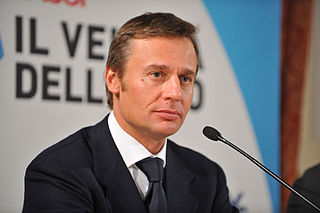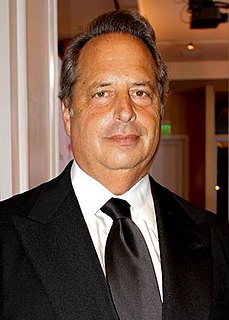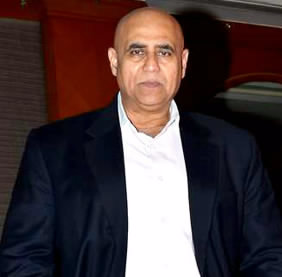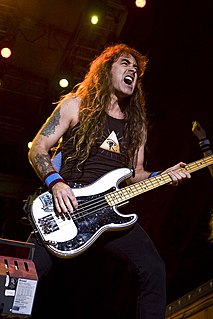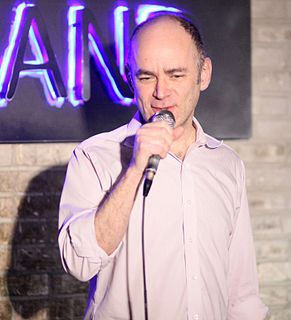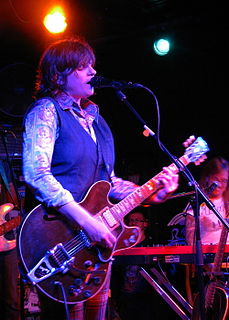A Quote by Jared Harris
I like the adrenaline of live performance, whatever that is, appearing in front of an audience of any kind, whether it's one or a hundred or a thousand. It gives you a buzz of adrenaline, its exciting. The thing about that is that you want to make those nerves work for you in terms of an energy that's appropriate for the part and the performance, and not to distract the people who are watching so that they become nervous for you.
Related Quotes
You want people to think. You want people to be emotionally moved. And there's a theory behind that in terms of storytelling. It has been around for thousands of years. And that's where something like live theater or a live performance is something that is very valuable because you get instant feedback from your audience and you kind of know the things that work and the things that don't work.
If you have a life which is adrenaline-charged all week long because you're a powerful CEO, or you have responsibilities and you're committed to the people you look after, it's very difficult on weekends to sit around the garden. So you probably look for something which gives you the same sort of adrenaline buzz.
Let's get one thing straight: I am not an adrenaline junkie. Just because you cover conflict doesn't mean you thrive on adrenaline. It means you have a purpose, and you feel it is very important for people back home to see what is happening on the front line, especially if we are sending American soldiers there.
There is one thing of which I can assure you. If good performance of the fund is even a minor objective, any portfolio encompassing one hundred stocks (whether the manager is handling one thousand dollars or one billion dollars) is not being operated logically. The addition of the one hundredth stock simply can't reduce the potential variance in portfolio performance sufficiently to compensate for the negative effect its inclusion has on the overall portfolio expectation.
In wrestling there are so many people inside and outside the ring, and it's so live, and it's this whole adrenaline thing. Whereas you move it into this more intimate thing, everything gets all quiet, someone says action, and you have to say the lines and make the words your own. It couldn't be any more different and it's weird sometimes trying to explain that to people. When I tell people that acting is much more terrifying to me than going out in front of ten thousand people, they don't quite believe it because for some reason that intimacy is just terrifying to me.
History has a way of coming back to you. In the case of Janis Joplin appearing at the festival in 1968, her performance affected the life of a Bostonian who is now a member of the Newport Festivals Foundation Board of Directors. Ward Mooney was so affected and emotionally involved in Janis’ performance at Newport, that when he heard the festival was going nonprofit, he knew wanted to become a part. Janis was beautiful, gracious and respectful, and the power of her Newport performance continues to live on.
Even if I'm doing a show and there's five people in the audience and the sound system is terrible - I mean, it's been a while but I've certainly done those kind of shows where it's just every conceivable thing is against you - you still have music. It's still something that's real whether there's five people in the audience or a hundred thousand people in the audience. And that's always been there for me.
I want a room that I can definitely pack out. I don't want to sweat that part, "Am I gonna have enough people?" So I usually pick like a hundred, a relatively small room. Also, I'm looser in a small room. I don't want to record an album in front of a thousand people, not that I could draw a thousand, but I just want a room that I can really work back to front. That's just a very comfortable place for me to be loose.


